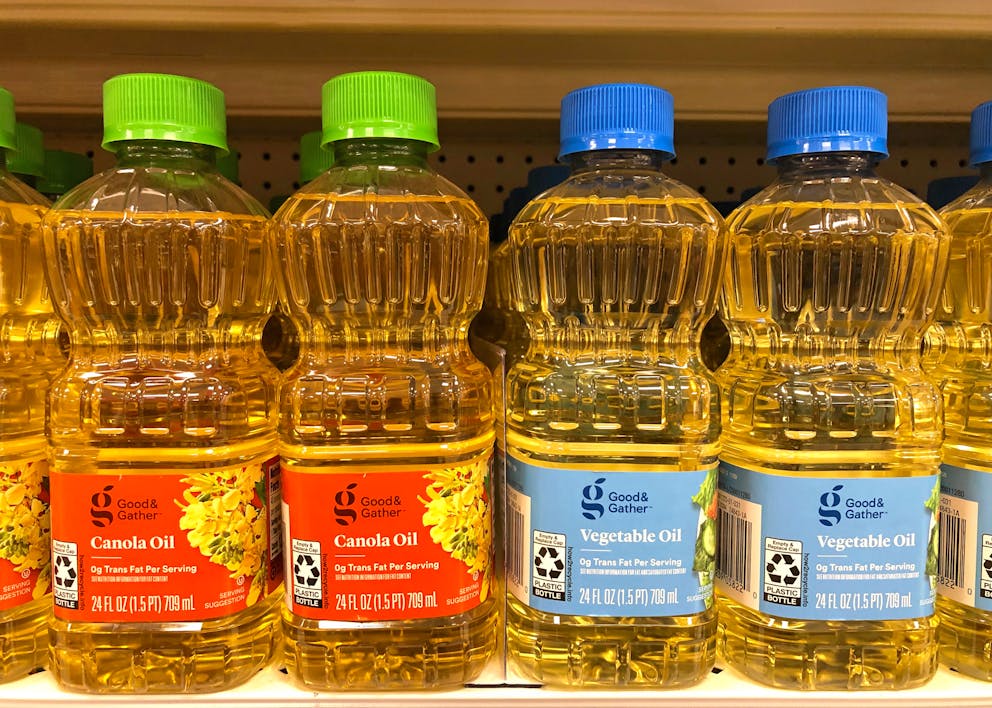Why is this Country the Most Overweight the World: (THE REAL REASON)
Imagine stepping into Nauru, an island nation where the health landscape tells a story of drastic change. Once thriving on rich phosphate deposits, this country's economic downturn has left its mark on wallets and waistlines.
The transition from wealth to hardship reshaped financial statuses and what's served on the table. Traditional diets rich in fish and coconuts gave way to processed imports, laying the groundwork for today's obesity and diabetes crisis.
Embarking on this journey, we'll uncover the stark transformation of Nauru from affluence to impoverishment and its significant repercussions on communal well-being.
Delving into the dietary warzone, we're set to contrast the ease of imported foods with the virtues of age-old nourishment. By the journey’s end, you'll grasp why nearly all food here is shipped in, making healthy options a luxury few can afford.
But there's more than meets the eye with ultra-processed foods—ingredients designed more for shelf life than human life are now staples here.
And when agriculture becomes an afterthought due to environmental degradation, dependency on these imports further cements.
From Riches to Rags: Nauru's Economic Decline
In 1975, Nauru was on top of the world thanks to a booming phosphate mining industry. It was one of the wealthiest countries globally, with its residents enjoying a high standard of living.
But what goes up must come down. As the island's phosphate reserves dwindled, its fortunes reversed dramatically. Soon enough, Nauru found itself in deep poverty.
The sudden change impacted their financial stability and profoundly altered what was on their tables and how it affected their well-being.
Nauru's financial crisis shifted their eating habits from local to imported, significantly altering health conditions in the long run. You can read more about Nauru’s economic history and how these changes have influenced dietary habits today.
Traditional vs. Westernized Diet in Nauru
In Nauru, traditional diets once centered around locally sourced foods like fish, coconuts, and root vegetables, reflecting a lifestyle deeply connected to the island's natural resources.
However, with increased globalization and access to imported foods, there's been a shift towards a more Westernized diet characterized by processed foods, sugary beverages, and refined grains.
This dietary transition has led to significant health challenges, including rising rates of obesity, diabetes, and cardiovascular diseases among the Nauruan population.
The Original Nauruan Diet
Nauru's customary cuisine, rich in the island’s harvests like fish and coconuts and an array of fruits and veggies, was a testament to its natural wealth. Staples like taro root and palm and coconut oils provided a balanced mix of nutrients.
Generations thrived physically and sustained a deep bond with nature through this diet until processed foods started to disrupt this equilibrium.
Introduction of Processed Foods
However, this harmony began to shift as processed foods found their way onto dinner tables across Nauru. As the island welcomed processed grains, ultra-processed items, and overly refined seed oils into its diet, it veered sharply away from its culinary roots.
What started as convenience soon spiraled into dependency due to these products' addictive qualities and low cost compared to healthier options.
The Role of Imported Foods in Nauru's Obesity Epidemic
Introducing imported foods has significantly impacted Nauru's traditional dietary patterns and health outcomes. These imported foods, often high in refined sugars, unhealthy fats, and processed ingredients, have contributed to the country's rising obesity rates.
The shift away from locally grown and traditional foods towards imported, processed options has been identified as a critical factor in Nauru's obesity epidemic.

High Cost of Healthy Options
In a shocking twist, nearly 100% of the food in Nauru is imported. This includes even necessities like water, which often costs more than soda. Imagine reaching for a water bottle only to find it pricier than your average fizzy drink.
This stark reality makes healthier options not just less accessible but practically luxury items. It’s no wonder then that obesity has been spotted in children as young as 15 months old. The price tag on health isn't just high—it's prohibitive.
The cost dilemma only worsens the situation, pushing households toward less expensive but more harmful processed options than healthier alternatives.
So next time you bemoan the cost of organic veggies at your local store, remember it could be worse—you could be shopping in Nauru.
Understanding Ultra-Processed Foods and Their Impact
Ultra-processed foods undergo extensive industrial processing, often containing additives, preservatives, and artificial flavors or colors. These products typically lack nutritional value and are high in unhealthy fats, sugars, and sodium.
Consuming ultra-processed foods regularly has been linked to various health issues, including obesity, heart disease, and metabolic disorders.
Artificial Ingredients and Their Effects
The truth about ultra-processed foods is they're loaded with artificial ingredients that can affect your health.
These Frankenfoods come packed with synthetic sugars like corn syrup, which might as well be wearing a villain's cape for all the havoc it wreaks on our bodies.
Moreover, these products are rife with seed oils that stoke inflammation, misleadingly masquerading as benign munchies.
This constant barrage of unnatural substances leads to nutritional deficiencies and leaves you feeling perpetually hungry because your body isn't getting what it needs.
It's like filling up your car with low-grade fuel and wondering why it sputters – except, in this case, the engine is your body.

The Seed Oil Controversy
If there were an award for "Most Likely to Contribute to Rising Obesity Rates," seed oils would win by a landslide. Oils from corn, canola, cottonseed, safflower, and soy have snuck into our diets more than sugar ever.
And here’s the kicker: these fats are not just empty calories; they promote inflammation throughout the body, leading us toward obesity and diabetes.
Agricultural Challenges and Food Import Dependency
Nauru's tale of environmental degradation is a stark backdrop to its current agricultural woes.
Once thriving from the bounty of phosphate mining, Nauru's landscape grapples with agricultural barriers as its overused earth begs for mercy, highlighting a desperate quest for lasting nourishment.
The harm inflicted reaches beyond the world, spiraling into aquatic realms where contamination unsettles the balance of fish communities.
Environmental Degradation's Role
How environmental damage has compounded the difficulty of establishing sustainable agriculture.
The consequence is a heavy reliance on imported goods to feed its population. Imagine an entire country where nearly everything on your plate has traveled thousands of miles before reaching you.
From water, which is more expensive than soda because it must be shipped in, Nauru's dependency on imports paints a grim picture of what happens when natural resources are exhausted without plans for renewal or sustainability.
The Dire Need for Nutritional Education and Policy Change
Nauru's journey from prosperity to a health crisis highlights the urgent need for nutritional education and policy reform.
Economic flux and a growing dependence on foreign edibles have magnified the need to transform how we understand nutrition and advocate for better food policies.
Imagine navigating a grocery store where healthy options are scarce and significantly pricier than their processed counterparts. This reality in Nauru makes it clear why educational initiatives coupled with supportive policies can make a real difference.
Initiatives like these could potentially open doors to healthier eating options, tackling the rising tide of obesity and diabetes that shockingly starts impacting toddlers barely over a year old.
Additionally, grasping the part that highly refined foods play illuminates how synthetic components exacerbate these medical concerns. Highlighting this connection emphasizes why embracing traditional diets enriched with local produce might be part of the solution.
Unveiling the Truth
Delve into the underlying reasons why this country has become the most overweight in the world. Beyond obvious factors like diet and lifestyle, this approach examines deeper societal and environmental influences contributing to the weight epidemic.
Understanding your unique body type through a body type quiz can shed light on how these factors specifically affect you.
By recognizing your individual metabolic tendencies and dietary needs, you can develop a personalized strategy to combat weight gain effectively, helping you navigate the broader challenges that have led to this national crisis.
Conclusion
Dissecting the roots of Nauru's obesity and diabetes epidemic reveals a complex web, yet it also lights a path toward potential healing.
From economic shifts that turned traditional diets on their heads to the heavy reliance on processed imports, these factors have reshaped what eating means in Nauru.
Ultra-processed foods packed with artificial ingredients now dominate, sidelining nutritious options.
Agricultural struggles further complicate the picture, making self-sufficiency a distant dream. But knowledge empowers change.
By recognizing these root issues—economic upheaval, dietary changes, imported food dependency—we can start paving the way for healthier futures.
Choosing wisely now paves the path for a healthier tomorrow.
Previous blog
How to Burn Fat–Dr. Berg ExplainsTags

Popular
08/21/2024
55.8K views
02/23/2025
46.9K views
11/18/2024
281.8K views
03/18/2024
11/21/2022




